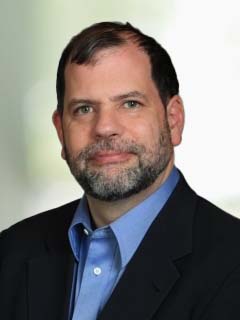Performing better at talent search: Q&A with Tyler Cowen
Author and professor Tyler Cowen shares his views on the biggest mistakes many boards make when it comes to talent searches.

For directors tasked with hiring and firing the CEO and oversight of the company’s talent strategy and human capital management, talent is always a critical issue. But in a fast-moving labor market, the intense competition for talent is causing a pain point for even well-prepared companies.
The KPMG Board Leadership Center (BLC) interviewed author and professor Tyler Cowen, host of the Conversations with Tyler podcast and coauthor with Daniel Gross of the book Talent: How to Identify Energizers, Creators, and Winners Around the World (St. Martin’s Press, 2022).
Here, Cowen shares his views on the biggest mistakes many boards make when it comes to talent searches, the best way to test character, and the importance of assessing candidates for dialectic traits.
BLC: You characterize the search for talent as an art and a science. Is the proliferation of data/information—along with artificial intelligence (AI) capabilities—tilting talent searches more toward science than art? Is there a key to striking the right balance?
Cowen: I don’t think AI is making a big difference yet, at least not for top jobs and creative jobs. But here is the thing: AI technologies end up distributed in virtually everybody’s hands at some point, just as I use the same Google that Bill Gates does. Sports teams use the same numbers and quantitative metrics, more or less. So at the end of the day, even if AI were more advanced than is currently the case, your competitive edge still would come from the part of talent search that is an art rather than a science.
BLC: Perhaps the most important role of the board is to hire, evaluate, and replace the CEO—essentially, it’s an ongoing talent search and assessment. Are there two or three insights from your work that apply to sitting CEOs and the senior talent pipeline? The concept of “compound return/rate of improvement” versus absolute ability that you discuss in the book is intriguing.
Cowen: CEOs have to be charismatic, but do not overlook the quietly charismatic people. Their radiance is not always so apparent on first glance, as they may be introverts. But they can be very good at commanding the loyalties of other people, and also good at recruiting and communicating a sense of mission.
And the concept of “compound returns” is definitely relevant here. A potential hire who does not reap compound returns every year probably will never be qualified to be CEO, even if he or she is able at other levels of the organization. So, obsess over looking for self-improvement and critical self-evaluation. Also, the CEO and the board need to trust each other, so the CEO is not interested in keeping out potentially qualified successors.
BLC: One talent trait that is highlighted in the book is an individual’s ability to hold different conceptual frameworks in mind—to have different perspectives at his or her disposal. Why is this so important, but also so neglected? What are some ways to actually assess for this trait?
Cowen: Leaders need to be revolutionary, but also conservative. Challenging, but also accepting. Extroverted, but able to understand the introverted side of life, and also able to live it. In each case, leaders have to embody a kind of dialectical opposite, and be flexible in how they apply their capabilities, depending on the professional context.
These dialectical traits can be hard to spot, which is one reason why they are so often overlooked. You might see one side of the person, but not the other—or only with time. That is one reason why, for top jobs, the recruitment process can take such a long time.
One clue or cue is simply to see if the job candidate can talk about others in such dialectic terms. Appreciation of the quality in others is one sign that the person can recognize the same in themselves. Another way to assess for the trait is to try to sketch out, if only mentally, a sense of the candidate’s resourcefulness. Do these dialectic traits ever pop up in your sketches of the candidates? Pay careful attention to that.
BLC: Job interview questions can be somewhat of a parlor game, with gotcha-type questions and stock answers. What did you find in your work about interview questions and approaches that can help uncover a candidate’s ethics and personal values, which are notoriously difficult to test for?
Cowen: The best way to “test” someone’s character is to be trustworthy yourself! Actually trustworthy. And see how job candidates respond to that. The interview, of course, can and probably should involve questions of substance. But the necessity of being trustworthy yourself trumps all of that. And one trustworthy person usually responds to another trustworthy person in a very genuine way.
BLC: Are there one or two questions or red flags that boards should keep in mind to probe for a flawed or outdated talent strategy at the company? What are the biggest mistakes management teams and boards make in their search for talent? Where do things break down?
Cowen: The biggest mistake I see is not making talent search a priority. Everyone says they do, but most organizations do not. One red flag is when the people doing talent search and hiring are not among the most talented people in the institution themselves. Furthermore, many companies make the mistake of looking for too much consensus and creating too many veto points over potential hires. Create a norm that not every objection is going to be honored in the hiring process. Put a bit more weight on the enthusiasm of the enthusiastic, and don’t always be scared by the worrywarts. This advice is especially important in a dynamic sector, less so in a fully mature sector.
BLC: Beyond the challenges of finding the right individual talent for a particular job, you also take the importance of uncovering overlooked talent to a macro-level—for corporate America, competitiveness, and societal progress. Do you generally find that business leaders who are best at uncovering talent also have Progress (capital P) in mind?
Cowen: Businesses and business leaders that are good at discovering talent believe in something. They are not just in it for the money. What exactly they believe in may vary, but it almost always translates to something at the macro-level. Believing in something greater than yourself, of course, is one of the very best ways to attract top talent to your venture. But that belief has to be sincere. It also has to be well-communicated, including in the hiring process.
BLC: Many boards wrestle with their own composition and recruiting—for the right mix of skills, diversity of views, depth of expertise, and breadth of experience to align with where the company needs to go. Do boards face the same obstacles and blind spots as their companies when it comes to uncovering talent for the boardroom, particularly among less-represented groups?
Cowen: Don’t rule out much younger people. Don’t rule out people with somewhat different socioeconomic backgrounds in terms of income and education. Consider people with their formative experiences abroad. Don’t rule out people with unusual résumés.
Yes, when it comes to talent-spotting at the board level, many of the same blind spots apply. And when it comes to underrepresented groups, many of the most obvious candidates face a plethora of offers. If you are to make progress, you will have to do some lateral thinking and perhaps look in some unusual directions.
The views and opinions expressed herein are those of the interviewee and do not necessarily represent the views and opinions of KPMG LLP.
Meet our team

Receive the latest insights from the Board Leadership Center
Sign up to receive Board Leadership Weekly and Directors Quarterly
